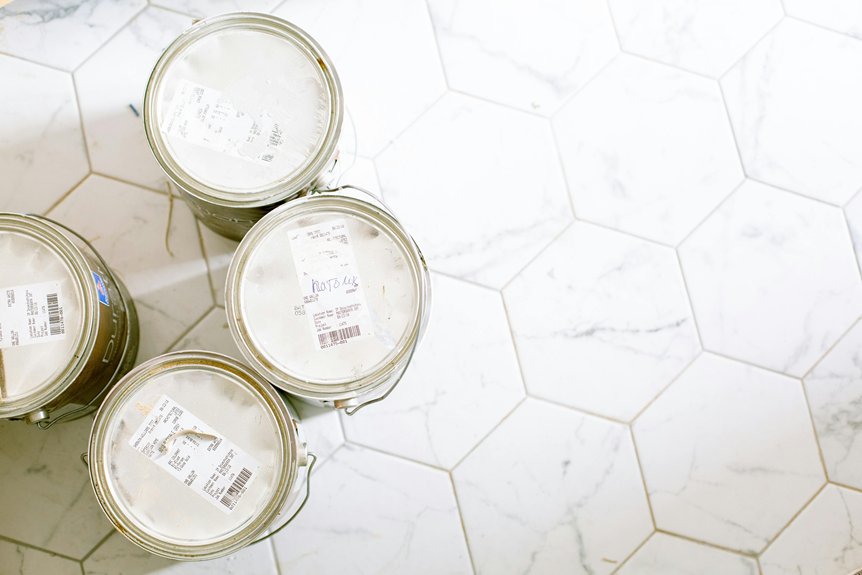When choosing flooring for your coastal North Carolina home, you need options that stand up to humidity, moisture, and daily wear. Vinyl and laminate each offer different benefits and challenges, but understanding how they perform in a humid environment can make all the difference. As you consider your options, you’ll want to weigh their durability, water resistance, and overall cost—factors that could influence your decision more than you might expect.
Material Composition and Construction
When comparing vinyl and laminate flooring, understanding their material composition and construction is essential.
Vinyl flooring typically features a flexible, waterproof core made of PVC or SPC, which offers high core strength and durability. Its layered design includes a wear layer, print layer, and backing, making it resistant to moisture.
Laminate flooring, on the other hand, has a fiberboard core topped with a photographic layer and a protective finish. While it provides good thermal insulation, its core is less resistant to water.
Your choice depends on your needs for strength, moisture resistance, and insulation in coastal North Carolina homes. Industry trend leadership ensures that both options are available with the latest finishes and finishes to suit your home’s style.
Water Resistance and Durability
Vinyl flooring generally outperforms laminate when it comes to water resistance and durability, making it an excellent choice for coastal North Carolina homes prone to humidity and moisture. Its waterproof features safeguard against spills, leaks, and humidity, preventing damage and warping.
Vinyl also offers superior scratch resistance, maintaining its appearance even in high-traffic areas. Unlike laminate, which can swell or warp when exposed to water, vinyl remains stable and long-lasting.
This robust durability ensures your floors stay looking great and withstand daily wear, making vinyl a practical, low-maintenance option for coastal environments where moisture is a constant concern.
Aesthetic Options and Style Choices
If you want your coastal North Carolina home to reflect your personal style, vinyl flooring offers an impressive array of aesthetic options and design choices. You can achieve vintage charm with patterned or distressed looks that evoke nostalgia, or embrace modern simplicity with sleek, minimalist designs.
Vinyl’s versatility lets you select colors, textures, and finishes that complement your decor. Whether you prefer rustic, shabby chic, or contemporary styles, vinyl can adapt effortlessly. Its wide variety of styles ensures your floors enhance your home’s character while fitting seamlessly into your vision.
This flexibility gives you the ability to create a space that feels uniquely yours.
Installation Process and Maintenance
Installing vinyl flooring is generally straightforward and can often be completed in a day or two, depending on the size of your space. Using proper installation techniques, you’ll guarantee a smooth, durable finish.
Vinyl often features click-lock or adhesive methods, making DIY installation accessible.
Maintenance routines for vinyl are simple: regular sweeping, damp mopping, and avoiding harsh chemicals keep it looking fresh.
Laminate, by contrast, requires careful installation to prevent moisture issues and gentle cleaning to avoid scratches.
Both options benefit from proper care, but vinyl’s lower moisture sensitivity makes maintenance easier, especially in coastal environments.
Cost and Long-Term Investment
When evaluating your flooring options, cost and long-term investment play crucial roles. A clear cost comparison shows vinyl often costs less upfront than laminate, making it appealing if you’re budget-conscious.
However, long-term value matters just as much—laminate may offer higher durability, reducing replacement expenses over time. Vinyl’s lower initial price doesn’t always translate to savings, especially if it needs frequent repairs.
Consider how each material impacts your home’s value and your finances years down the line. Ultimately, balancing initial costs with durability and longevity helps you make an informed choice that benefits your home and wallet over time.
Suitability for Coastal Climate Conditions
Coastal North Carolina’s humid, salty air presents unique challenges for flooring materials, making their suitability a key consideration. Vinyl flooring offers marine grade durability, meaning it withstands moisture, salt, and humidity better than laminate.
Additionally, vinyl typically has superior UV resistance, preventing fading and discoloration from sun exposure. Laminate, on the other hand, is more susceptible to water damage and may warp or swell in high-humidity environments.
For coastal homes, choosing a flooring option with strong marine grade durability and UV resistance ensures longevity and maintains appearance despite the harsh coastal climate. Vinyl generally proves to be the more resilient choice in these conditions.
Conclusion
In coastal North Carolina, vinyl flooring is your best bet for lasting durability and water resistance. It’s easy to maintain, withstands humidity, and offers plenty of stylish options. While laminate might look good, it’s more prone to water damage, making it less ideal for coastal environments. Choosing vinyl guarantees your floors stay beautiful and resilient over time, giving you peace of mind and long-term value in your home. To learn more about our amazing flooring options, call us today at (336) 270-9622 or visit us online at Floor Plus More.

